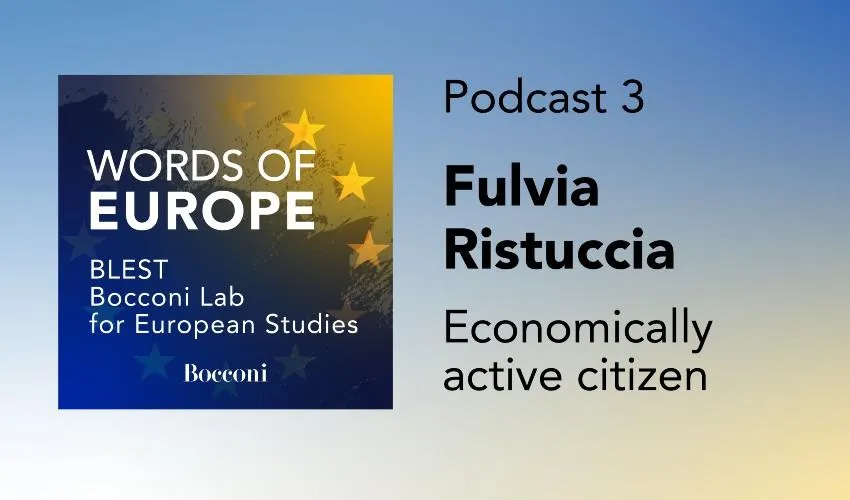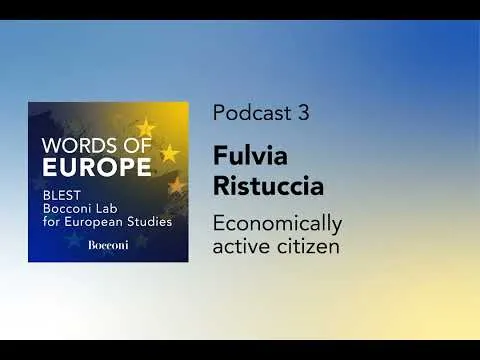
Why to Be an Economically Active Citizen in Europe
All nationals of European Union member states are Union citizens. While this might look like a little meaningful addition to the national citizenship, important rights descend from it. Among these probably the most important and cherished one is the right for all EU citizens to move and reside freely in all EU member states. But why is it important to be "economically active"? Because this right to move and reside freely across the European Union differs in conditions and scope for economically "active" and "inactive" citizens, Fulvia Ristuccia, a Bocconi PhD student, explains in the third episode of the Words of Europe podcast.
To be economically active, in practice, means being employed or self-employed in order to prevent abuses and not become a burden on welfare and social assistance systems of the host country.
There is considerable discretionality over what you need to do in order to be considered "economically active", which is in fact a good thing as a too strict definition with binding criteria might exclude honest people who do not want to become a burden but are nonetheless temporarily unable to work full-time, or are being trained without a salary.
It is difficult in some situations to establish whether someone (more often than not, a woman) is an economically active citizen or falls in the less protected and less privileged status of economically inactive citizen. This may cause arbitrary dividing lines and discrimination in the distribution of rights and risks further marginalizing those who are already at the fringes of the labor market.
By presenting some of the features of the EU in a simple way, Words of Europe seeks to give even those who do not have a specific legal or economic background the tools to actively take part in the discussion of opinions.
Listen to the episode and follow the series on:
Spotify
Apple Podcasts
Spreaker
Economically active citizen | Podcast #3
